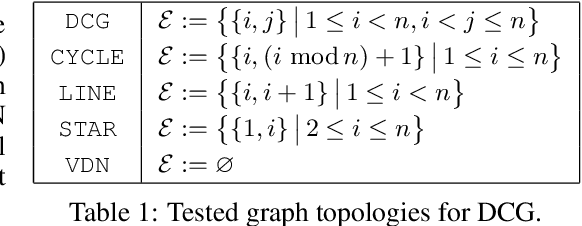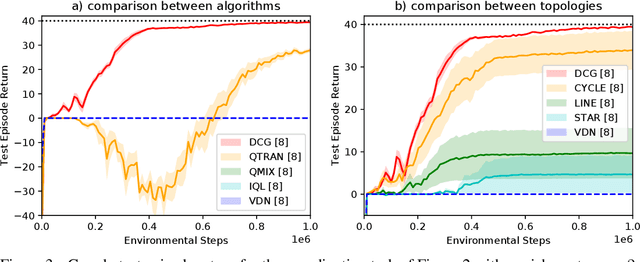Deep Coordination Graphs
Paper and Code
Sep 27, 2019



This paper introduces the deep coordination graph (DCG) for collaborative multi-agent reinforcement learning. DCG strikes a flexible trade-off between representational capacity and generalization by factorizing the joint value function of all agents according to a coordination graph into payoffs between pairs of agents. The value can be maximized by local message passing along the graph, which allows training of the value function end-to-end with Q-learning. Payoff functions are approximated with deep neural networks and parameter sharing improves generalization over the state-action space. We show that DCG can solve challenging predator-prey tasks that are vulnerable to the relative overgeneralization pathology and in which all other known value factorization approaches fail.
 Add to Chrome
Add to Chrome Add to Firefox
Add to Firefox Add to Edge
Add to Edge